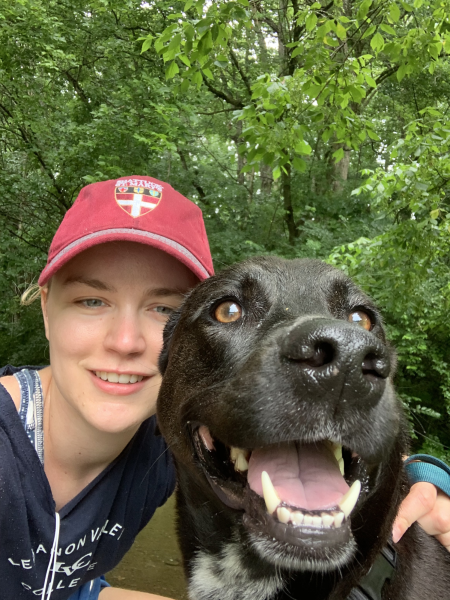In the spring of 2021, Emily Weinstock-Collins woke up feeling a little strange. Amid a global pandemic, she thought it was just a cold. At worst, it would turn out to be COVID. But this feeling never seemed to leave, and this day would be the start of a long journey battling with chronic illness.
After testing negative for COVID, Weinstock-Collins brushed it off, rested well, and waited to recover. Yet, days turned into weeks, and her sickness never seemed to retreat. An entire year later, concerned Weinstock-Collins finally got an answer after being diagnosed with Sjogren’s Syndrome, an autoimmune disease. Another year later, during the summer of 2023, she received her endometriosis diagnosis.
It was very surprising because I always thought, if I got sick, I would always get better…By the time I got my diagnosis, it was not very surprising because I knew something was wrong. I’ve just been waiting a really long time for [answers]
— Emily Weinstock-Collins
“It was very surprising because I always thought, if I got sick, I would always get better…By the time I got my diagnosis, it was not very surprising because I knew something was wrong. I’ve just been waiting a really long time for [answers],” Weinstock-Collins said.
Endometriosis is a disease where tissues similar to the uterus lining grow outside the uterus. The tissue breaks down and bleeds during every menstruation cycle, and the blood has no exit from the body, irritating surrounding tissues.
According to a 2023 report by the World Health Organization, about 10% of reproductive-age women and girls are affected by it. Endometriosis causes chronic pelvic pain, nausea, fatigue and extreme pain during periods, bowel movements, and urination. It can last for years, sometimes a lifetime, and has no known cure.
Weinstock-Collins’s diagnosis was challenging for her at the beginning, but after three years, she has learned to accept it, even if it is tough to live day-to-day. “It’s just sort of part of who I am now,” she said.
To accommodate her new life, Weinstock-Collins has taken the power to care for herself and find joy in different ways. Since everything began, she has had to think more carefully about food and rest. Collins cooks her meals and has gone gluten-free and dairy-free. She also has to make sure she has regular access to food because skipping a meal aggravates the effects of endometriosis. She goes to bed very early and makes rest a priority on weekends.

In the beginning, her social life was greatly affected. However, like other things, she is slowly but surely figuring out how to go out and do things again.
“Most people just go out and see their friends, but I have to plan it out and make sure I know how I’m gonna make that happen,” said Weinstock-Collins.
When Collins teaches, she also draws on her journey with chronic illness. After going through many hard and painful days, but also more hopeful days, she has realized that it is hard to tell what someone is going through. Hence, she aims to look out for her students’ feelings more.
“I think about all my students and [how] I can’t tell if they’re having a good day or bad day, whether that’s physically or mentally. You always hear the phrase, ‘You never know what someone’s going through.’ But then to actually live that, to be in pain [while] in school and to know that other people can’t tell. I think that makes me a lot more aware of what students might be dealing with,” Weinstock-Collins said.
It started as a slight sickness, but it grew slowly and slowly, completely changing how Emily Weinstock-Collins approached each day of her life. However, another thing that changed was her mindset and view of those around her. Four years later, the upper school Math teacher takes on a new life and brings with her the many lessons she has learned.